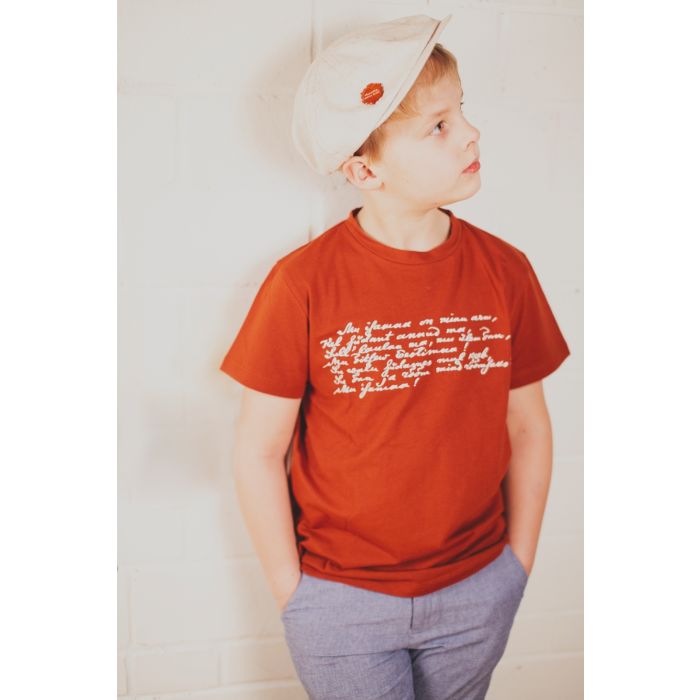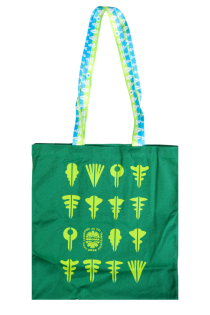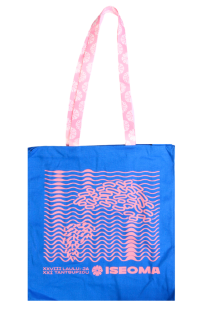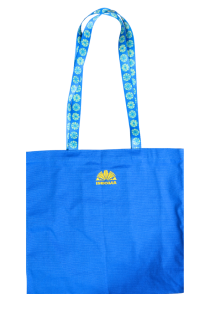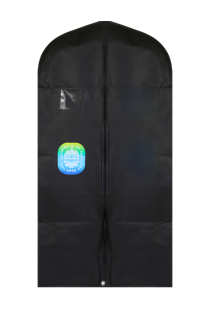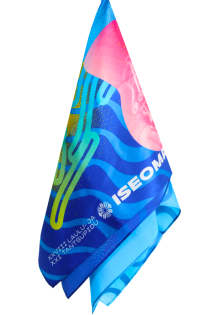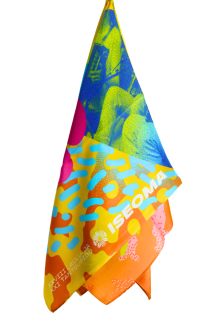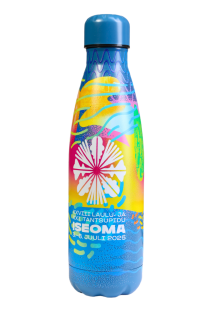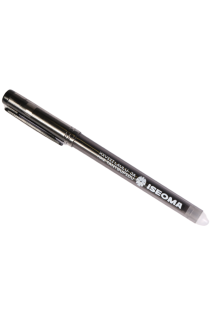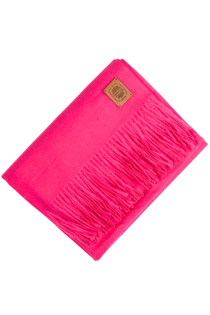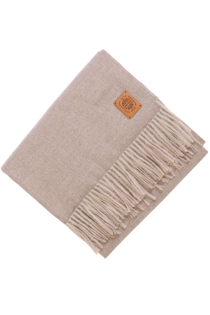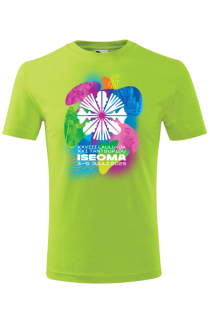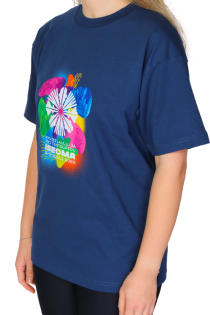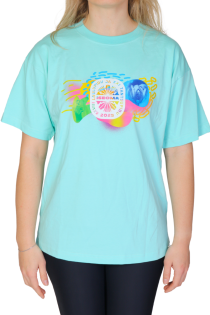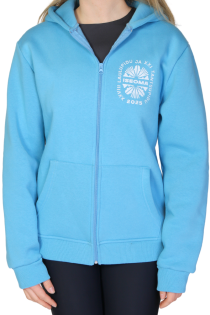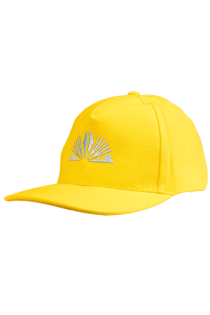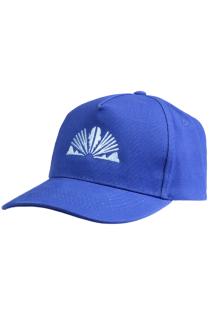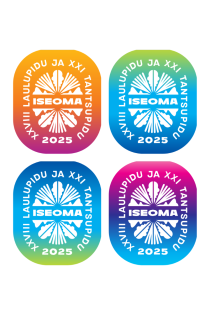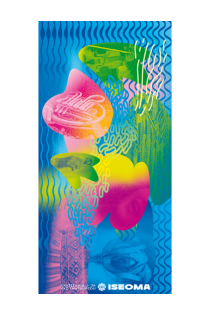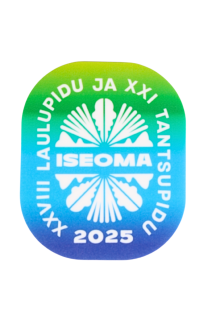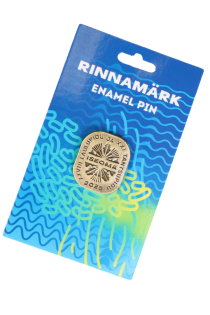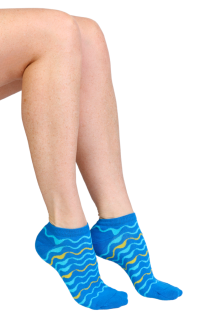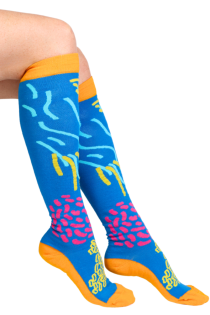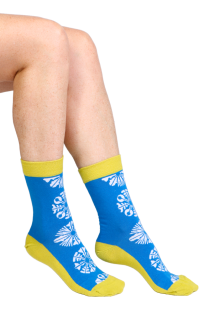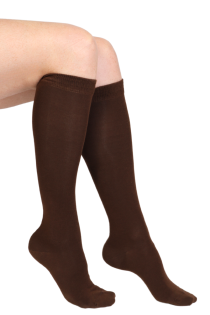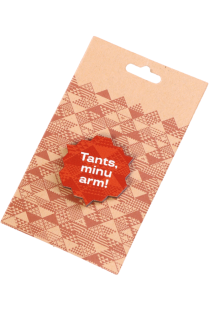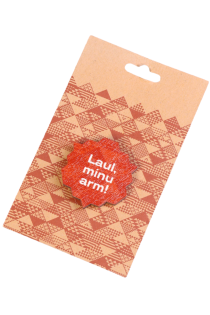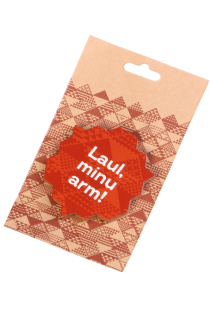2019. Anniversary Celebration Children's brown T-shirt MINU ARM (my love)
Availability: In stock
€14.90
€5.99
Children's T-shirt with Song and Dance Celebration symbolics.
A verse of "Mu isamaa on minu arm" (My Fatherland is my love) on the chest.
Song and Dance Celebration logo on the back.
Colour: brown.
Composition: 95% cotton, 5% elastane.
Made in India.
The Song and Dance Celebration MINU ARM (My love) T-shirts are produced in accordance with the principles of fair trade and in collaboration with Reet Aus. Fair trade is a method of trade and an international agreement that provides direct and efficient support to the disadvantaged small farmers and producers in Africa, Asia and Latin America.
Fair trade ensures:
*economic viability for farmers and producers in developing countries, including a minimum price that covers all expenses for the producers, and a fair remuneration for workers;
*environmentally friendly and sustainable production;
*social responsibility, including the prohibition of slavery and work that exploits children, respect for workers’ human and labour rights, and better working conditions;
*pre-financing of production, and long-term trade relations between producers and importers.
The five principles of fair trade are:
* Fair pricing – manufacturers will receive a price that covers all production costs, ensures decent living conditions and a reasonable income.
*Child labour is prohibited – all forms of child labour are prohibited, especially if they harm children's education or their physical health and mental development.
*Decent working conditions – people working in plantations, farms, processing plants and other companies work in decent and safe conditions and receive salaries that enable them to live a decent life.
* Development of local communities – in addition to the minimum price, a producer will also be paid a mark-up, i.e. a premium, a significant part of which will be invested in the development projects of producer communities. These projects include supplying drinking water, building roads, establishing education and health care facilities, covering school and vocational education costs, as well as healthcare costs, microfinance, etc.
* Environmental sustainability – the fair trade system excludes harmful agrochemicals and GMOs. In addition, it supports production technologies that preserve valuable ecosystems and protect the health of producers, workers and consumers.
A verse of "Mu isamaa on minu arm" (My Fatherland is my love) on the chest.
Song and Dance Celebration logo on the back.
Colour: brown.
Composition: 95% cotton, 5% elastane.
Made in India.
The Song and Dance Celebration MINU ARM (My love) T-shirts are produced in accordance with the principles of fair trade and in collaboration with Reet Aus. Fair trade is a method of trade and an international agreement that provides direct and efficient support to the disadvantaged small farmers and producers in Africa, Asia and Latin America.
Fair trade ensures:
*economic viability for farmers and producers in developing countries, including a minimum price that covers all expenses for the producers, and a fair remuneration for workers;
*environmentally friendly and sustainable production;
*social responsibility, including the prohibition of slavery and work that exploits children, respect for workers’ human and labour rights, and better working conditions;
*pre-financing of production, and long-term trade relations between producers and importers.
The five principles of fair trade are:
* Fair pricing – manufacturers will receive a price that covers all production costs, ensures decent living conditions and a reasonable income.
*Child labour is prohibited – all forms of child labour are prohibited, especially if they harm children's education or their physical health and mental development.
*Decent working conditions – people working in plantations, farms, processing plants and other companies work in decent and safe conditions and receive salaries that enable them to live a decent life.
* Development of local communities – in addition to the minimum price, a producer will also be paid a mark-up, i.e. a premium, a significant part of which will be invested in the development projects of producer communities. These projects include supplying drinking water, building roads, establishing education and health care facilities, covering school and vocational education costs, as well as healthcare costs, microfinance, etc.
* Environmental sustainability – the fair trade system excludes harmful agrochemicals and GMOs. In addition, it supports production technologies that preserve valuable ecosystems and protect the health of producers, workers and consumers.


